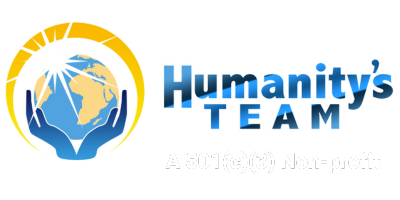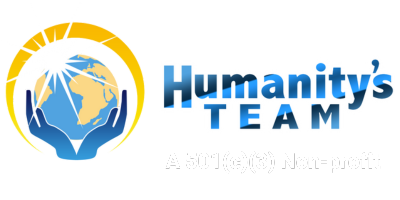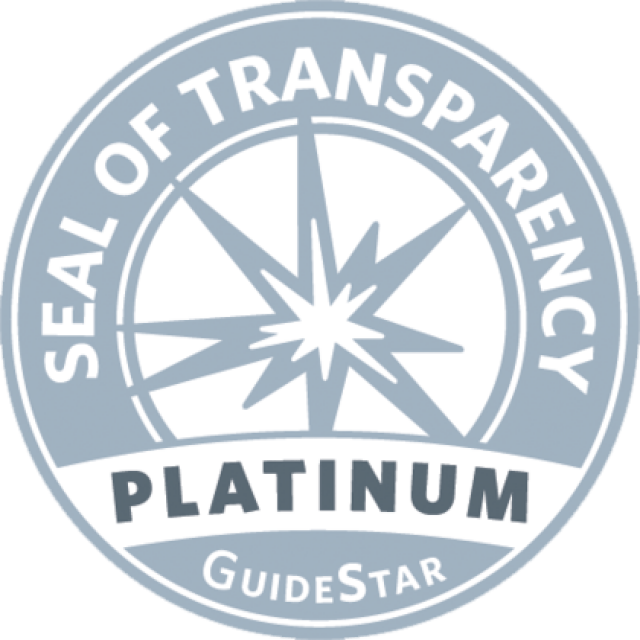ONENESS In the Twelve Spheres of Life
OVERVIEW

The next step: to ensure that Oneness is grounded in all spheres of life.
The launch of the Humanity’s Team “Oneness in Twelve Spheres of Life” Initiative originally formed part of our Global Oneness Campaign in 2008. With our Oneness Programs well established, this initiative enables us to take Oneness to the next step: to ensure that Oneness is grounded in all spheres of life.
The Humanity’s Team “Oneness in Twelve Spheres of Life” initiative is based on the Wheel of Co-Creation and the “12 around 1” model developed by Barbara Marx Hubbard (Birth 2012), a powerful representation of the whole-system shift that is currently unfolding. The twelve societal spheres comprise the full list of the basic functions of any community. The “12 around 1” principle can be seen as representing the stability in nature, and is the basis of the concept of “tensegrity” pioneered by Buckminster Fuller.
In the development of our initiative, we were also inspired by the ideas, thinking, and concepts of the Thrive Movement and Ken Wilber (Integral Approach / A Theory of Everything). All three of these luminaries embody a mixture of scientific, intellectual, spiritual, activism, and grassroots focus. ( A link to the summaries of our Research Analysis that includes the main ideas of all three of these leaders can be found at the bottom of this page.)
Oneness is strengthened and expanded in all spheres through the appreciation of all of Humanity’s Team’s Main Statements and Initiatives:
Declaration of Cultural Diversity
In the development of our initiative, we were also inspired by the ideas, thinking, and concepts of the Thrive Movement and Ken Wilber (Integral Approach /Theory of Everything). All three of these leaders can be said to have a mixture of a scientific, intellectual, spiritual, activism, and grassroots focus.
The Sphere of Arts
The realm of creative expression through various media
Renowned surgeon and author Leonard Schlain suggested that great advances in science were historically preceded by advances in the perception of artists. As such, artists of all types from any field, scientific or humanistic, can be seen as harbingers of new ways of perceiving/thinking, and then as the tellers of that story, finding simple yet eloquent ways of sharing their perceptions with the world.
From a Oneness perspective, art attempts to acknowledge all the different partial and whole relationships that contribute to the creation, appreciation, influence, and ultimately the meaning of art considering the following:

every human being is creative, and art is integral to all human endeavors.
The Perspective of the Artist Who Creates the Art
Attributes that influence the meaning of art include the artistic training and technical skill, aesthetic sense, creative style, and personal interests, as well as the artist’s psychological make-up, present emotional state, values, beliefs, level of cognitive development, level of self development, and level of spiritual development.
The Perspective of the Viewer
It is very possible that what the artist intended and what the viewer derives are not the same. Here we are mindful of the idea that the viewer’s interpretations are just as much a part of the ultimate meaning of the work of art as the artist’s intentions. Just as with the artist, the viewer’s aesthetic sense and personal interests, as well as his or her psychological make-up, present emotional state, values, beliefs, level of cognitive development, level of self development, and level of spiritual development, will all contribute to provide a context in which to determine the meaning of the art.
The Perspective of the Outside Cultural Context in Which the Work of Art is a Part
Some of the cultural factors that would be influential to the meaning of a work of art are things like present political currents, historical events that affect the present culture, the overall cultural values and definitions of what is beautiful and what is artistically skillful, and the overall average level of emotional, cognitive, moral, self identity, and spiritual development within the culture.
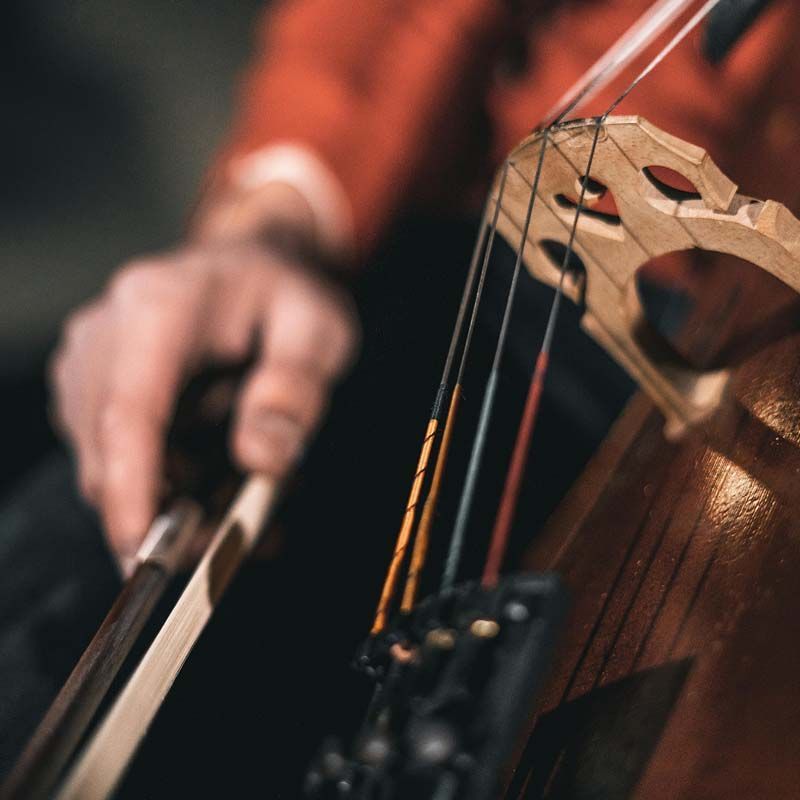
Artists can be seen as harbingers of new ways of perceiving / thinking
The arts permeate every aspect of our lives and reflect the artists’ gifts and desires to enquire about and to observe all aspects of life. The arts therefore are meme-makers and meme reflectors — mirrors through which we can see ourselves in new ways. From this perspective, every human being is creative, and art is integral to all human endeavors.
The Potential of Art
Art has the potential to help us realize our deeper nature if we allow ourselves to see how, in its creative seeds, there lies the source, the birth, and the death of the entire Universe. It can help us realize that the simple painting of a tree is similar to the vast unfolding of Spirit in and as the cosmos. It can help us realize that ultimately a speck of dust holds the same depth and breadth of magic, grace and beauty as a master’s painting, a poetic verse, or a symphony.
Because art of any form is an expression of our reality, it reflects and promotes social change, pushes boundaries, and challenges the status quo. In this way, the arts unite us and help us to grow and to create stronger, closer, healthier and more vibrant communities.
Art has obviously always been a powerful revolutionary tool, and it now becomes an evolutionary tool, as well. It is a healing force, helping to restore traumatized individuals and communities, where symbols of destruction are transformed into beacons of reconciliation, forgiveness, and hope.
Art beautifies and energizes the spaces where we gather. It shapes, improves and transforms communities and neighborhoods and other spaces where we meet and hold our ceremonies, including the way we honor our icons and those close to us who have died. The arts as a whole are also a powerful tool to generate income, and thus a great source of prosperity.
The arts continue to play a critical unifying and healing role in society. As such, the creation and appreciation of art cannot help but transform us if we are open and willing to engage in the ongoing process of broadening our horizons and striving to expand and integrate all aspects of life. This very journey toward wholeness certainly holds its own important quality regardless of whether or not our ultimate, idealized destination is ever reached.
As we are aware of the inextricable inter-relatedness, inter-connectedness, and inter-dependence of all of Life, the highest purpose of art is to express and reflect the Absolute Truth as an Awareness and a Self-Awareness, and to encourage the further development of Oneness Consciousness.
The Sphere of Economics
The science that deals with the production, distribution, consumption and management of goods, services and currency

Oneness consciousness in economics will foster values such as integration and cooperation rather than competition and strife.
From the broad definition of the agreement of exchange on micro and macro, formal and informal, and local and global levels, economics touches every aspect of our lives. The ways our economic systems are structured impacts the outcomes for all the different spheres, including whether they flow with or dominate the natural systems of the earth.
In an Authentic Intimate Community, the multiple dimensions of each person in the community are appreciated, and as a result, money issues diminish in importance. It is as if we can attune with each other’s gifts, and when benefit rather than profit is the focus, money and accumulation become a distant detail that play a small role.
From the broad definition of the agreement of exchange on micro and macro, formal and informal, and local and global levels, economics touches every aspect of our lives. The ways our economic systems are structured impacts the outcomes for all the different spheres, including whether they flow with or dominate the natural systems of the earth.
In an Authentic Intimate Community, the multiple dimensions of each person in the community are appreciated, and as a result, money issues diminish in importance. It is as if we can attune with each other’s gifts, and when benefit rather than profit is the focus, money and accumulation become a distant detail that play a small role.
The way the money system works, including the creation of money out of nothing, directly impacts every person’s job, home, family and community – all of our motivation and actions. For this reason, this sector is perhaps the most important to transform.
International banking elite and giant corporations have managed to gradually turn almost the entire world into a population of debt-slaves. Exposing and eliminating these systems and replacing them with honest, open and fair trade for the benefit of all can provide the critical turning point toward creating a world where everyone can thrive.
The focus on short-term profitability and material well-being as a main priority has outgrown the capacity of the Earth to regenerate itself and has left our natural resources depleted and the planet polluted.
We continue to witness ineffective and unscrupulous involvement by governments, which leads to an undesirable balance between freedom and control. On account of the rising fears of citizens, the key to ensuring maximum corporate earnings has become for the governments to exert less control over them, which in turn leads to more dangerous risk-taking in the absence of proper checks and balances.
Oneness Consciousness in economics calls for a paradigm shift and a “third way” rather than an increase or decrease or a combination of the two alternatives. This new state of consciousness will allow us to come to the roots of our economic challenges and to birth a new approach instead of continuing to try to remedy what happens on the surface.
Oneness consciousness in economics will foster values such as integration rather than disintegration, cooperation rather than competition and strife, and in keeping one-another safe rather than destroying one another. The progress of society will be measured more by social indicators and not by economic growth and materialistic values alone.
Involvement and change in this sphere form part of the process of defining a new economic regulatory system through the consideration of the underlying inter-relatedness, inter-connectedness, and interdependence of life and the observation that “there is enough.”
Accessing the Intelligence of our Sacred Oneness with our fellow human beings and our Natural Environment creates huge efficiencies in the areas of time, energy, and other resources. The compensatory nature of our contributions becomes multidimensional, and single-minded monetary and material gain diminishes in importance.
The Sphere of Education
The realm of intentional learning — the gathering of knowledge and understanding
This sphere is all-inclusive, encompassing all forms of education, formal and informal, across ages, species, and cross-species. It also includes an awareness of cultural memes and assumptions, perceptual filters, scientific studies, the psychology of learning, etc.
Some of the main principles and methodologies that a Oneness approach to education can draw upon include: holistic education, developmental models of growth and learning, the human-potential movement, multiple intelligences, student-driven learning, learning over a lifetime, inquiry-based experiential learning, ethical and community-based learning that values service, embodied teaching, participatory curriculum development, and constructivism. Examples of such progressive pedagogies are Montessori education, Steiner/Waldorf schools, unschooling/homeschooling, transformative education, and Reggio-Emilio schools.
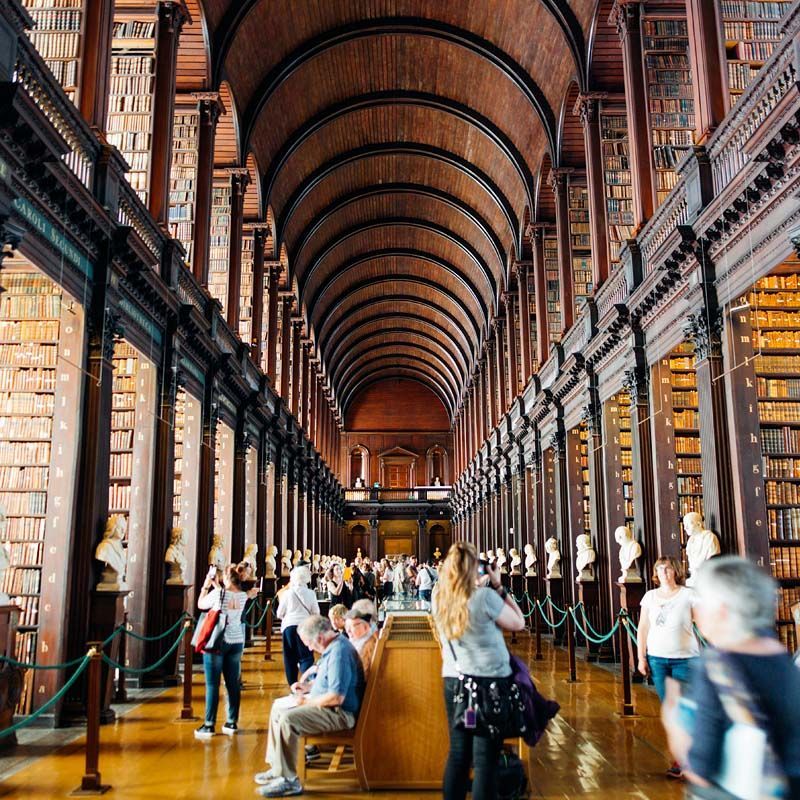
Oneness is about being in the world. And as such, education from this perspective is about creating positive change that reaches from the personal to the planetary in scope and content.
This approach is both effective and elegant as it is not restricted to any of these. It can combine the best of each to more fully serve a person’s needs and learning style. For example, the firmer guidance and attention given to systemic boundaries, and the clearer directional/correctional approach offered by a Montessori school can be supplemented by the imaginative, creative and aesthetic learning space offered by a Steiner school.
Oneness is about being in the world. And as such, education from this perspective is about creating positive change that reaches from the personal to the planetary in scope and content. Learning programs promote the ability to hold multiple perspectives that develop more efficient and fruitful problem solving and leadership skills, as well community building. They evoke artistic, creative, intellectual and spiritual faculties, as well as multiple intelligences (intuitive, contemplative, and interpersonal skills). This learning can take place in the great outdoors, as well as in the classroom, in community and in the self, and in the interweaving of mastery and mystery.
An important aspect of this approach to education is that the teacher embodies and enacts the principles that these approaches lay out and aspire to. The teacher not only has the ability to bring authentic engagement into the learning space, they have expertise in and passion for their area of teaching and seeks to educate the whole human being (body, mind, heart and soul). They also help the student to bridge from the classroom to life beyond it by considering the practical applicability of their subject matter, encouraging the emergence of greater levels of complexity, and holding the awareness of and appreciation for the interconnectedness of multiple subject areas and perspectives, as well as the meta-level of the learning/teaching dynamic, and a personal commitment to transformation and ongoing learning and inquiry.
In this approach, the focus of education is on co-creation and the function is that of drawing a circle of relevance around the raw data and systems that support life. In this Sphere, knowledge about the outer world through the five senses is infused with Self Knowledge and Love that is gained by the continuous practice of connecting to one’s Divine Essence and inner wisdom throughout their life journey so that they can grow in their deeper understanding of Life.
As the full creative potential of Oneness Consciousness makes students the masters of their life, they spontaneously command circumstances and situations. They have a natural ability to fulfill their own interest without jeopardizing the interests of others, and their behavior nourishes themselves and those around them. Such enlightened individuals are the result of Oneness Consciousness-Based Education.
The Sphere of Environment
The surroundings in which we live; the natural world as a whole — including ourselves

Our approach to caring for and preserving and sustaining our Natural Environment is based on knowing that foundationally we are the environment and we are Life, all of which is Sacred.
The environment is seen as the context in which everything takes place within the adaptive systems of the Earth. In the same way the body is the environment within which the trillions of cells that make up all aspects of itself, the environment is the context of life on earth.
In this complex terrain all bodily systems – circulatory, digestive, and respiratory, etc. – mimic the systems of the environment. Everything is sacredly interconnected, interrelated and interdependent. The air we breathe contains the molecules breathed by billions of other humans, as well as the plants and the animals. In this sphere, we witness how everything in the environment is connected and affected by human design or the lack thereof.
Here in the 21st century, humanity is faced with many global issues. The process of globalization is filled with both disaster and dignity as more people, initiatives, and organizations than ever before are working on our toughest issues, including climate change, alternative energy, and the depletion of our natural resources, to name a few.
The process of growth of disciplines such as ecology, education, or economics is chaotic and dynamic with the boundaries between them paradoxically becoming thinner and thicker. Many cross-, inter-, and even trans-disciplinary approaches serve to link between and across these disciplinary boundaries.
A Oneness approach to this process provides a meta-framework for more effectively understanding and leveraging the relationships between the disciplines, their methods, and areas of focus. It allows us to better coordinate and align the efforts applied for deeper and longer-term sustainable impact.
A Meta-Framework
With hundreds of distinct and valuable perspectives on the natural world—and with scientists, economists, ethicists, activists, philosophers, and others often taking completely different stances on issues, we need to sort through these and connect them in a pragmatic way that honors these insights whilst arriving at some agreement to solve our toughest environmental problems.
A Oneness framework provides a way of understanding the relationship between who is perceiving nature, what is perceived as nature, and how the perceiver uses different methods, techniques, and practices to disclose nature.
Oneness Platform
The natural world is filled with awareness. Therefore, ecologists will embrace holistic principles as the foundation for the most comprehensive contemplation of and response to our ecological situation, and recognize that human attitudes, behaviors, institutions, and practices generate complex environmental problems across the globe on multiple scales. In order to accommodate and integrate the vast number of different disciplines, the ecologist is aware of the different domains of reality, methods of knowing, and ecological selves who are responsible for these disciplines, and the ecologist is committed to coordinating and building bridges between various domains, methods, and perspectives, especially in the context of specific environmental problems.
To bring about sustainable change in this sphere, one is obligated to increase one’s capacity to take and hold additional perspectives in order to dismantle self/other dynamics that arise in the course of addressing environmental issues. They are also obligated to engage in long-term, personal transformational practices in order to develop their emotional, somatic, psychological, and spiritual dimensions.
Oneness ecologists will recognize that all life forms experience, perceive, and create shared horizons of meaning, both within and across species, and that not all life-forms have an equal capacity to do so. The adoption of a multidimensional value ethic serves to allow consideration of the idea that suggests that an individual (human or nonhuman) or a process can simultaneously be of equal value, greater value, and lesser value than another individual or process depending on the criteria used.
Oneness in this sphere affirms the ultimate mystery of all phenomena as a way to prevent attachment to unbending conceptualizations of our ecological reality.
Our approach to caring for and preserving and sustaining our Natural Environment is based on
knowing
that foundationally we are the environment, and we are Life, all of which is Sacred. The Golden Thread that runs through all of this and connects everything is Love. The Universe is One Being and we are its essential cells – all and responsible for the Whole. We respond to our natural environment with Love.
The Sphere of Governance
The administration of authority and leadership of a community
What we value and how we perceive life is reflected in our governmental designs. Throughout history, the purpose and structure of human government have reflected the diversity of human and life systems.
This sphere, however, goes beyond mere organizational design and embraces all scales, from self-government to entire nations, from classroom to boardroom, and human to natural systems.
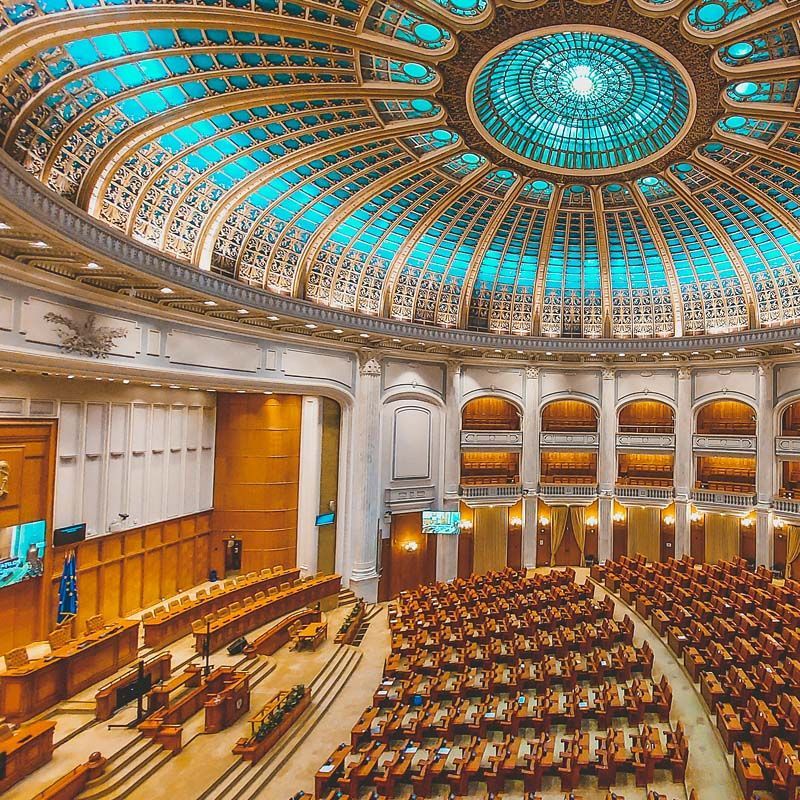
We are currently witnessing the most diverse movement the world has ever seen, capable of dealing with matters of authority in new ways that enables it to re-make the world it desires.
World-renowned environmentalist, entrepreneur, journalist, and author Paul Hawken writes:
“A Global Democracy Movement is about to pop: I believe there are over one million organizations working toward ecological sustainability and social justice. Maybe two... After spending years researching this phenomenon, including creating with my colleagues a global database of these organizations, I have come to these conclusions: this is the largest social movement in all of history, no one knows its scope, and how it functions is more mysterious than what meets the eye... The movement can’t be divided because it is atomized – small pieces loosely joined, it forms, gathers, and dissipates quickly... It has been known to bring down governments, companies, and leaders through witnessing, informing, and massing...
"The movement has three basic roots: the environmental and social justice movements, and indigenous cultures, resistant to globalization – all of which are intertwining. It arises spontaneously from different economic sectors, cultures, regions, and cohorts, resulting in a global, classless, diverse, and embedded movement, spreading worldwide without exception.... It is the largest coming together of citizens in history.... The promise of this unnamed movement is to offer solutions to what appear to be insoluble dilemmas: poverty, global climate change, terrorism, ecological degradation, polarization of income, and loss of culture. It is not burdened with a syndrome of trying to save the world; it is trying to remake the world.”
We are currently witnessing the most diverse movement the world has ever seen, capable of dealing with matters of authority in new ways that enables it to re-make the world it desires. No one is in charge of it, and there is no orthodoxy. It is global, classless, unquenchable, and tireless.
The new emerging collaborative leadership is not vested in any single person but rather in consensus-based, self-managed teams leading themselves. It follows the approach of inviting people’s perceptions, feelings, and intuition via round-table discussions and dialogue in order to arrive at consensus, and then leads into working collaboratively toward common goals that serve the greater good. This new leadership works with people who hold pluralistic worldviews and who value connection, authenticity, and opportunity for self-growth. Collaboration takes place amongst responsible/sustainability focussed organizations, humanized workplaces, self-managed teams, and nonprofits.
On the political front, instead of the current opposing left versus right approach, Oneness offers a ‘third way’ – a political system that transcends both sides of the partisan divide and that includes the revelations and the very best of both without limiting oneself to the tyranny of either and without resorting to the uninhibited compromise of mere centrism.
Through Oneness, leadership is able to integrate Spirit as a Living Force in the world, principled political candidates are willing to lose, and Presidents win elections by promising to create the best opportunities for the electorate to expand their awareness, to see their deeper possibilities, and to reach for new levels of experience and opportunity.
Through the development of our inner (heart) qualities, we are able to co-create a world of sustainable peace, harmony, and prosperity for all.
This Sphere is given life through the recognition that the world does not have to be the way it is and that individual people can change it using the power of Spiritual Citizenship. We are Government through our own Self-Governance.
We recognize that as human beings, we need each other to survive on this planet, that we are all in this together, and that community flourishes as we learn about each other and revel in the wonder and beauty of our diversities. We play a conscious part in helping to bring about a culture in which we, the people of the world, can address our common global concerns in a holistic, positive and transforming way, and live together in peace with one another.
The Sphere of
Health
The vitality, well being and wholeness of a living system
As humans, we have come to learn that what happens inside our bodies is directly affected by what happens around us. We no longer perceive ourselves as separate beings but instead as complex adaptive systems-within-systems. Our concepts of health have evolved with our awareness, and we know that our thoughts and emotions have an impact on our health.
This sphere therefore is perhaps one of the most dynamically shifting areas of human understanding. As our awareness of whole-systems expands, we begin to see and experience the interconnectedness of everything to the extent that boundaries are beginning to disappear and taking us to unimaginable heights when it comes to our health.

the aim of considering Oneness in health, healing and medicine is to utilize as comprehensive an approach as possible in treating any illness.
Oneness in health promotes a model of healing in which personal relationships and emotions, as well as meaning and belief systems, are viewed as fundamental points of connection between body, mind, spirit, society, and nature. Oneness medicine embraces the recognition that human beings possess emotional, spiritual, and relational dimensions that are essential in the diagnosis and treatment of disease and the cultivation of wellness.
Like in matters of science, some fundamental questions that arise around questions of health are: who is the healer and who is the healed? Science now confirms that the two are never separate. The scientist is never separate from that which he/she observes. Inevitably these questions also deal with aspects of power, and unfortunately, with this, also harm.
Oneness in health is an opportunity to consider what the statement “All healing is self-healing,” and what the 2,000 year old Hippocratic Oath, “Do no harm to your patients,” really means. Those who developed the oath would have realized that of all the power that a physician has (much of which is undoubtedly beneficial and positive), there is also the unprecedented capacity to harm a person, legally. It was also understood that there were two ways to do harm: sins of commission and sins of omission. A physician can harm a patient with what he knows; but even more so, with what he does not know.
On the positive side, the aim of considering Oneness in health, healing and medicine is to utilize as comprehensive an approach as possible in treating any illness — while, of course, remaining fully cognizant of the many economic and pragmatic realities and constraints. Although Oneness in health recognizes and includes the pioneering “holistic,” “allopathic,” “alternative,” and “complementary” approaches, Oneness health/medicine is much wider in its reach and more grounded in empirical research, and more effectively related to comprehensive models of human psychology and consciousness. Oneness includes the enduring and effective elements of both complementary and conventional medicine, while launching something completely new.
In the carving of a new Oneness health/medicine model, typical traditional challenges and dilemmas are considered:
- Desired level of involvement of the physician with his/her patient. For years medical students have been taught that it is not good to get emotionally involved with their patients as a sincere attempt to bring an effective, dispassionate and scientific approach to healing an illness.
- The mind/body challenge that deals with the question that humans have some sort of consciousness and free will, while physical science proceeds as if reality is a closed, materialistic and physical system. The conventional medical approach more or less forces a physician to treat a patient as if the patient were essentially a biophysical or material system with one physical intervention after another physical intervention. This happens while neither the patient nor the doctor perceive themselves as something purely physical.
- The question of the effectiveness of conventional medicine in the absence of patient compliance.
- The major dilemma of where to locate the illness – the entity itself, as well as its cause. This question is especially relevant in the field of mental health.

Oneness in health promotes a model of healing in which personal relationships and emotions, as well as meaning and belief systems, are viewed as fundamental points of connection between body, mind, spirit, society, and nature.
Because the conventional physician needs to be effective, he/she often finds themselves becoming less of a human being. A Oneness approach to health and healing treats the person, the illness, as well as the physician. Instead of establishing which methodology is right and which is wrong, it rather asks: “What kind of a World is it that allows all of those methodologies to arise and be necessary in the first place?”
The healing of this Sphere is based on the premise that we are not our bodies but that we are Spirit having a human experience. And through the lens of Oneness, it is clear that in some mysterious way, everything is connected to everything else, so all illness is somehow deeply embedded in networks, systems, and chains of pathology. And if we wanted to answer the question about the location of an “illness,” then we must also examine what it is that is meant by “health.” Can a person be healthy when he/she experiences him/herself as spiritually malnourished? And should, and how can a doctor treat this?
The stage is set for the extraordinary miracle that most of us do not yet understand: healing.
The Sphere of
Infrastructure
The underlying physical structures and systems to support human society
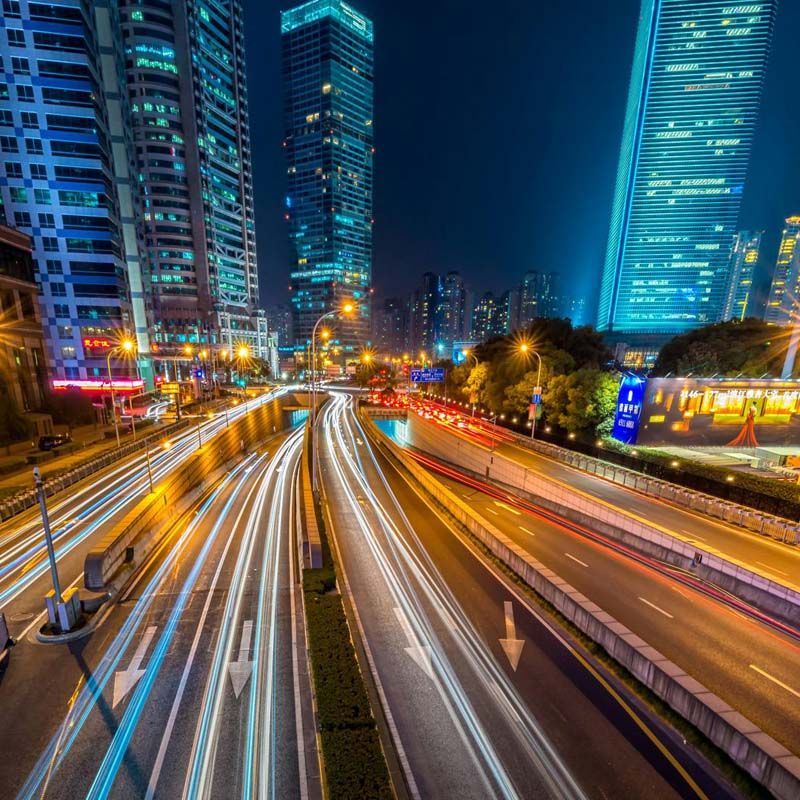
when designing infrastructure systems, we are mindful of the fact that the Earth is a sacred space, village, and community
Infrastructure refers to the basic underlying framework of any internal framework, system, organization, or facility that serves a given locale. For example, transportation, energy, communication systems, schools, military, food systems, etc. These are all massive forces that in some cases drive our quest for sustainability, and in other cases drown in it.
In this sphere, we attempt to design, create and build systems and structures that serve the long-term health and well being of humanity, all of life, and all of consciousness, while keeping in mind the important dynamics that come into play when doing so, including the psychological and experiential aspects, behavioral and bodily aspects, cultural and communications aspects, and systemic and structural aspects.
Creating these systems, prescribing holistic and integrated solutions to social and ecological challenges, and envisioning an ideal future need not be and should not be overly complex, and will ideally be simplistic. Identification of key leverage points will have the greatest positive influence, allowing the practitioner responsible for intervention or implementation to merely push on a few key levers and then observe the ripples as they spread through the whole system.
Obviously, the more conscious the designers and the practitioners are, the better the chance of creating sustainable systems. These individuals and organizations have a capacity for considering the most critical aspects as they are part of systems of systems, or even systems of systems of systems. With each leap in their cognitive awareness, they will find increasingly sophisticated and nuanced dynamics within and between these aspects.
More than ever before, we are called not to have a prejudiced focus on the world but rather to see the forces, dynamics, and truths revealed through all of the dimensions of the world as they arise concurrently. The world is as it is (one event), and yet, following the quotation from the Talmud, “We do not see things as they are; we see things as we are.”
The infrastructure, along with the systems and designs supporting it, that make our daily lives possible and keep things running smoothly, are often taken for granted. The roads we drive on, the water we drink, and how we get it, the electricity we use and how it is generated, whether our waste is recycled, exported, or left to rot, are all determined by infrastructure.
At this point in our human history, most countries (and some whole continents) have poor and failing infrastructure that severely impacts daily life and threatens our safety and even our survival. We have an opportunity and an obligation to create innovative, eco-friendly, and sustainable systems, technologies and structures to better support our lives and our communities.
Following the premise that we are part of the Greater Cosmos, when designing infrastructure systems, we are mindful of the fact that the Earth is a sacred space, village, and community, and as we get in touch with our essence, the place from which we contribute to the world in real, meaningful ways – new ways of dancing and being with one-another, and of building sacred space, villages, and communities are revealed.
We know Who We Are and are conscious of the systems we create that will sustain the inner body of society through our connection with the Whole of the Cosmos and through our conscious awareness of this connection.
We realize that the internal framework, systems, organizations and facilities that serve a given locale for example – transportation, energy, communication systems, schools, military, food systems, etc. – must be seen as wheels within wheels and as representing the whole living, dynamic, and evolving body and system of human society, with all of its parts in relationship with one another, inevitably interrelated, interconnected, and interdependent, through diverse values, cultures, and levels of development and consciousness.
The Sphere of Justice
A way of protecting each individual's innate rights
While on the one hand we are moving into an era of more and more political freedom and democracy and the dissolving of borders, the growth of litigation and regulation has also injected a paralyzing uncertainty into our everyday choices. All around us are warnings and legal risks, threats to freedom of expression, secrecy bills, etc., that leave us feeling powerless and insecure.
Government service is seen as dysfunctional in many countries, and as a bureaucratic jungle rather than as a noble calling and a place of service to fellow human beings and society at large.
Citizens are paralyzed by legal self-consciousness, continuously checking whether they know the rules that must be followed. We have become a culture of defensive followers of rules, trained to frame every solution in terms of law or possible risk. The person of responsibility has become the person of caution.
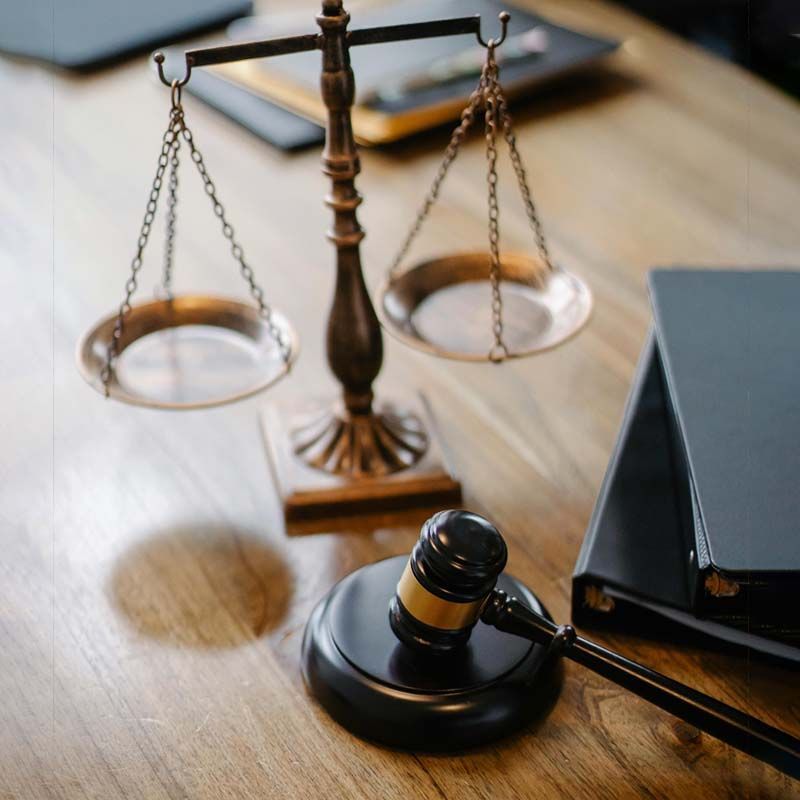
the Love that regulates the stars and the planets lies at the core of everything and all of Life, including matters of law and justice, human rights, morality, AND ethics
It is said that all this law is just the price of making sure society is in working order, but the fact that society is not working is all too painfully evident. We are not only confused and often denied our rights, but maybe most alarmingly there is gross falseness and double-dealing when it comes to rights and justice. The cost of everyday living is out of control, forcing people to be slaves to debt.
And we are not safe, not as countries, and not as individuals. As a matter of fact, the risk keeps growing. We are literally sitting on a (nuclear) time bomb.
It is safe to say that the world is not in good shape. Behind the systems that we rely on is immense power and monetary figures that one cannot even begin to try to understand. They make no sense. Peaceful protesters seeking social justice are jailed while corrupt hedge fund managers receive multi-billion dollar bailouts and multi-million dollar bonuses.
How far can you trust your doctor, your teacher, your rabbi, your police officers, your psychologist, your financial adviser, as well as the scientists, the lawyers, the media, the voting system, and the president?
The error and the solution lie in our conception of freedom. We think of freedom as political freedom that is decided upon when we make our choice at the ballot box (for those who have that privilege). Some are even free to live and work where they want.
Freedom should, however, include the power of personal conviction and the authority to use one's common sense. Alexis de Tocqueville, the French political thinker and historian best known for his Democracy in America and The Old Regime and the Revolution, says: “Freedom is less necessary in great things than in little ones... Subjection in minor affairs does not drive men to resistance, but it crosses them at every turn, till they are led to sacrifice their own will. Thus their spirit is gradually broken and their character enervated.”
The activism of Occupy Wall Street was the rage and revolt against the social injustice and suppression experienced by the masses of the world. All people, including government officials, doctors, lawyers, teachers, etc., want to be free to make their daily choices by focusing on their goals and letting their subconscious instincts get them there. We want to feel our way to success and make things work through trial and error.
The overlay of law on our daily choices destroys the human instinct needed to get things done. Bureaucracy does not teach, rules alone do not make things happen, and accomplishment is personal. Modern law however pulls the rug out from under all of these human powers and replaces it with a debilitating self-consciousness.
In this sphere, dealing with morality, human rights, government, law and justice, we want to determine how our liberty may be restored when we do not all see it the same way.
Here we want to distinguish between...
- How liberty is currently approached as law that sets boundaries that prescribe what we must do or can’t do (for example: You must not steal, you must pay taxes, and you must not openly disagree with the official government narrative), and how liberty could be approached with` the same legal boundaries protecting an open field of free choice in all matters.
- It is the second component; the provision of “frontiers, not artificially drawn,” as philosopher Isaiah Berlin put it, “within which men should be inviolable,” that the law needs to consider. Instead of being all prescription and no protection, the law must affirmatively define an area free from legal interference.
We need to abandon the idea that freedom is a legal maze where each choice in life is merely like picking the correct answer. The new goal for law should be to define an open area of free choice. This will require judges and legislatures to affirmatively assert social norms for what is reasonable and what is not. Justice Oliver Wendell Holmes Jr. suggests that “The first requirement of a sound body of law is that it should correspond with the actual feelings and demands of the community.”
Instead of changing public goals, the intention should be to make it possible for citizens to achieve their personal goals. Instead of building structures to defend daily freedom, judges would aspire to keep lawsuits reasonable, understanding that what people sue for ends up defining the boundaries of free interaction.
Instead of bureaucratic micro-management, schools will be run by the instincts and values of the people in charge, and they will be held accountable for how they do. There will be flexibility in how government officials meet public goals, with regular outside consultation focused on making choices that aspire to create balance for the common good and not purely to appease a single individual’s rights. Citizens should be allowed to have individual freedom in their daily choices within the context of a higher purpose of “justice for all.”
A new approach to morality does not arise from feelings of jealousy, hate, resentment, or animosity of any kind. It calls on us to look at our individual shadows and acknowledge when our own drive to reign-in others, including the ultra-rich, borders on its own kind of greed and will to power.
In this sphere, we are considerate of the Natural Laws of the Cosmos that are all in an inter-relationship with one another: perpetual, immutable, and self-administering – meaning that they do not require a government, policemen, courts, or jails to enforce them to maintain order.
According to these Seven Spiritual Laws of the Universe by which everything in the Universe is governed, everything in the Universe exists in perfect harmony by virtue of these laws that can be applied not only in the field of Law and Justice in society, but in all spheres of society.
We learn that the Love that regulates the stars and the planets lies at the core of everything and all of Life, including matters of law and justice, human rights, morality, ethics, etc. We have an innate knowing that comes from the heart about that which serves the greater good, and although we may escape human laws, we never escape the law of our own nature, which at our very core is Love.
Instead of creating a mindset of judgment, guilt and punishment, through Oneness Consciousness, humanity is made aware of our mutual responsibility toward one-another and our natural environment. We are encouraged to support spiritual principles, global ethics, and universal values such as respect, justice, peace, dignity, freedom, responsibility, and cooperation that form the basis of Oneness Consciousness.
Oneness politics, human rights, governance, law, and justice are all then based on Love.
The Sphere of Media
The means of disseminating information and entertainment among people

THE SPHERE OF MEDIA must give everyone the best opportunity to create meanings and solutions for themselves and society at large, for the greater good.
Any means of communication is technically part of the media, so what this encompasses keeps growing, and along with it, the complexities of its power to influence. The difference between reflecting what is and creating what is has blurred, and with it the content, as well as the ethics regarding its use and structure. With the internet now considered to be a global neural network, we need to establish how we can best utilize this interconnectivity at our fingertips. We need to ask what other means of interconnective communication we may be overlooking that would stretch our experience of the media even further.
There are many factors at play (like pressure from authorities and conflicts of interest) that make the media reluctant to cover complex societal issues and for readers/listeners to get to the truth of a story.
There needs to be a way to comprehensively integrate and balance objective facts with intersubjective perspectives, as well as the input of the most authoritative non-partisan experts. A new paradigm of whole-view journalism and communication must be considered to create news coverage that successfully integrates the exterior objective and interior subjective worlds of both the individual and the collective.
Conventional objective mainstream media normally juxtaposes partisan conservative perspectives with partisan liberal perspectives, creating a debate where the reader/listener feels obligated to choose one side or the other, even when sometimes both perspectives can be right or both can be wrong – or even more often, both perspectives are half-right and half-wrong. Moving beyond a bipartisan juxtaposition of intersubjective perceptions and including nonpartisan perspectives would provide a check and balance on two opposing points of view.
Because arguments and events reflect different spheres of reality, the aim is to organize the grains of truth from each perspective while still pointing out the untruths, and to get different points of views to talk to each other instead of at
each other. A whole-view approach will help to integrate and organize the partial truths of various points of view, and can help to successfully incorporate observable, exterior objective facts while taking into consideration the underlying invisible, interior intersubjective perceptions.
A polarized gap is created through “He Said / She Said” communication, because individuals are isolated from real interacting through dissident points of view, with the current state of journalism remaining ineffective at bridging this polarized gap. A whole-view approach would encourage and stimulate dialogue between opposing viewpoints so that real meaning can be co-created by the collective. By incorporating the perspectives of a variety of different official views and experts, journalism and communication would put a larger emphasis on bridging the gaps of understanding between conflicting perspectives.
It is not about creating a space in which any one party can win, but to provide information and to enable dialogue where the participants are allowed to seriously explore the strongest merits of a great variety of points of view, factors and facts. In the end it must give everyone the best opportunity to create meanings and solutions for themselves and society at large, for the greater good.
As human beings, we are constantly bombarded with an endless parade of messages that come in myriads of forms and shapes and lines, as thoughts, symbols, dreams, communication, etc., with the Internet and Technology playing an ever-growing and powerful role. We are indeed part of the Big Mind and we are shaping our world and being shaped by the world through these messages and our interpretation of them.
The development and healing of this Sphere is based upon the idea that the message, “We Are All One, interrelated, interconnected and interdependent, with God/Life/One-another,” is the key spiritual message the world has been waiting for to bring about loving and sustainable answers to humanity’s challenges.
This means that our communication and connections with the billions of others as we enter the space of the Global Brain will reflect our conscious communication and connection with our self; ensuring that we co-create the sustainable world of peace and prosperity for all we’ve all been dreaming of instead of recreating that which we do not want.
The Sphere of Relations
The field of human interaction: with sensations, emotions, thoughts, other beings, and the environment
With the advent of whole-systems thinking and perceiving, our attention has shifted beyond thinking of relationship as simply meaning between human and human, or the mere elements of any given system – economic, natural, etc. – to acknowledge the relationships between all these elements.
In this sphere, seen through that lens, everything relates to everything else. The “individual as hero” is revealed as severely limiting and incomplete. At the same time, our understanding of communication itself and communication skills, such as listening with the intent to understand, and the elements of conflict, have expanded tremendously, opening the door to a new era of relational intimacy across all scales – individual to global.
To enhance our relationships and the relationship between all spheres, we are encouraged to...
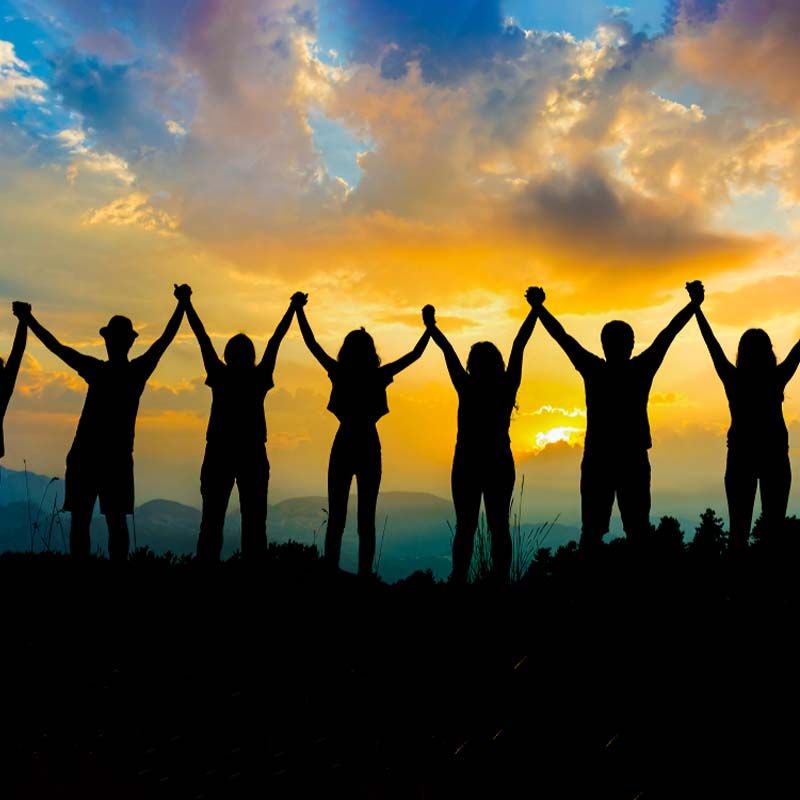
WE ARE ENCOURAGED TO Use our relationships for ongoing mutual growth, learning, healing, and awakening towards our capacity to love unconditionally
- Continually develop, balance and harmonize our healthy feminine and masculine polarities within ourselves, as well as with one another, and to meet others as both equals and opposites, and to create synergy
- Use our relationships for ongoing mutual growth, learning, healing, and awakening towards our capacity to love unconditionally
- Share in a purpose for our relationships which is larger than any individual, and to offer it in service for the greatest good of our fellow human beings and of nature
- See the depth of our heart and soul connections, as well as the level of humility and devotion to our relationships as an indicator of our psychological health and spiritual realization to set and respect healthy boundaries
- To share material resources and pursue an environmentally and socially responsible lifestyle
- To love by choice, not seeing love as something that we attract or that merely happens to us
- To base our relationships in “being” values, as opposed to material or emotional neediness
- To hold an evolutionary perspective and to continue to strive toward a higher level of consciousness
- To seek practices that will enhance the health of our body, mind, spirit/soul, and shadow, as well as work, ethics, sexuality, emotions, and relationships.
This sphere is infused with Oneness when we realize that healthy relations are dependent on the relationship with self and the acceptance of those parts of our self and others that we regard as being “not good.” Wholeness and togetherness can only be experienced through the recognition of the uniqueness, beauty and purpose of all aspects of life, and that this recognition starts with the self.
We are part of the emerging Consciousness of Oneness that promotes a spirit of openness, inquiry, connection and relationship with our self and the entire Universe, and that continues to recognize the wonder, beauty and mystery of it all.
The Sphere of Science
The ordering of knowledge by thesis, experiment and conclusions

THE SPHERE OF MEDIA must give everyone the best opportunity to create meanings and solutions for themselves and society at large, for the greater good.
Any means of communication is technically part of the media, so what this encompasses keeps growing, and along with it, the complexities of its power to influence. The difference between reflecting what is and creating what is has blurred, and with it the content, as well as the ethics regarding its use and structure. With the internet now considered to be a global neural network, we need to establish how we can best utilize this interconnectivity at our fingertips. We need to ask what other means of interconnective communication we may be overlooking that would stretch our experience of the media even further.
There are many factors at play (like pressure from authorities and conflicts of interest) that make the media reluctant to cover complex societal issues and for readers/listeners to get to the truth of a story.
This sphere includes all areas of science and all applications of scientific thinking and methodology. Instead of thinking of them as separate fields, innovations in biology, information science, physical and space sciences, and the psychologies of transformation are all seen as merging and cross-pollinating each other, allowing for greater insights and awareness of the interdependence of all sectors, systems, and life itself.
This section attempts to be more than an encyclopedia of science. It offers a couple of new lenses to look through and some powerful insights that liberate the quest for scientific understanding of the cosmos and our place in it.
Physical science has obviously had a profound impact on both the material and spiritual conditions of life in our world. On the one hand, it has improved the material conditions of life, while on the other hand, it has undermined the spiritual traditions that were the foundation of our religious and moral values. This has left us materially rich but spiritually bankrupt, with profound imbalances and consequences.
For example, the technology that we have developed has given us unprecedented power to change the outer world, but we often use this power with no guidance from our moral or spiritual values. While we are able to explain the subtle phenomena of the outer world through sophisticated scientific theories, we seem to know precious little about consciousness and its relationship to matter.
Although the material comforts that we enjoy today are greater than ever before in history, we are no closer to finding lasting happiness. Our knowledge and understanding of the outer world has developed to such a degree that it overshadows, ignores, and even denies knowledge of the inner realities.
There is a great need to balance our outer and inner knowledge, and for the integration of spiritual wisdom and physical science, and to do so we must relax our idea that that verification must take place within the limited domain of outer sensory experience.
Fundamental principles of a Whole Science will embrace both the outer domain of physical science and the inner domain of spiritual traditions to establish a science that is comprehensive of both inner and outer experience.
Since there has never been and never will be any experience or knowledge outside of consciousness, and since any scientific verification takes place in experience, the foundation of both inner and outer science is consciousness. Consciousness is indeed the foundation for all knowledge, personal and public.
Consciousness is prior to the distinction between inner and outer, public and private; therefore, it cannot be excluded from or be limited by any domain. It is equally present in everything and is the common ground for both the subjective (inner) and the objective (outer) world.
In this sphere, we reveal the deep relationship between physical and spiritual laws. We support the idea that our current state of the world is not the only way the world can be and the only way conscious experience can be structured. There are thousands of worlds with thousands of beings, and we see here but a thin thread of all that is possible.
In this sphere, we consider the scientifically substantiated idea that there is no way to remove the observer – us – from our perception of the world, which is created through our sensory processing and through the way we think and reason. Our perception – and hence the observations upon which our theories are based – is not direct but rather is shaped by a kind of lens: the interpretive structure of the brain.
All of Life/Existence is consciousness; the fundamental entity, which is non-physical, inactive, placid, indescribable, and non-associative, but also endowed with autonomous willpower to create, retain and annihilate all concepts of knowledge of self and the Universe.
Oneness Consciousness in the field of Science will help humanity to realize our full individual and collective potentialities instead of depending on the knowledge gained through sensory perception for the benefit of the expansion of the field of Consciousness of Knowledge. Once we can embody consciousness containing the infinite set of knowledge and are able to see ourselves in all of Life and the Creator of our Universe, we can co-create the world we really want through our conscious choices.
The Sphere of Spirituality
The exploration and experience of our fundamental metaphysical nature as spirit
In this sphere, we see the energy and spiritual connection between God/Divinity/Source, humanity, and all of life. We also see that we are all individuations of the Whole, and that everything is interrelated, interconnected, and interdependent. We are spiritual beings having a human experience. When we see ourselves and everything as a part of God/The ONE, we begin to seek to connect with and serve this Body/Whole that we are part of. Our lives become our spirituality demonstrated.
Imagine a world...
Let us imagine a “balanced form of spirituality” honoring male and female archetypes.
Let us imagine being able to laugh at the humor of our predicament. Let us imagine a world where God is not a bully and takes no offense.

When we see ourselves and everything as a part of God/The ONE, we begin to seek to connect with and serve this Body/Whole that we are part of.
Let us imagine no more self-righteous spiritual autocrats who put their own opinions into God’s mouth.
Let us imagine a return to guides who encourage us to look within, to challenge the beliefs we have come to accept unquestioningly.
Let us return to genuine teachers who will be willing to let you find your own way in your own time, not clinging like lost children.
Let us imagine replacing religious divisions with all-embracing eclecticism that acknowledges that the Absolute Truth can never be said, but that relative truths can be expressed in various conceptual vocabularies.
The wisdom of the world is all around us, yet people are caught in grips of being punished for checking it out. Imagine a world where a common spirituality can be synthesized out of the various approaches.
The idea is not to carve out another monolithic one-world religion but about finding unity in the variety. We never, never again want religion imposed onto the world.
Let us imagine a world where spirituality is treated as a private affair, just like sexuality. Let us imagine as much spiritual variety as possible, with everyone finding their own path. “All people according to their own stage of development, possessing the Knowledge of God in a special way to themselves.” —Theodotus.
Imagine a world where adversity is understood as different approaches to a shared endeavor, where we are either engaged in exploring the range and depths of experience, or in becoming conscious of consciousness which is the ground of all experience, where these two paths are understood as complementary and everyone in their completely different ways can be seen as participating in the same adventure.
Let us imagine that spirituality is not something otherworldly and esoteric, but an inherent natural process of ordinary human existence.
Let us stop attempting to add a special spiritual dimension to life and recognize that life is the spiritual process. “This is it. This and no other. Not what it chanced to be, but simply what it must be, without the must.” —Plotinus
Let us imagine a life-affirming spirituality that sees self-knowledge and true enjoyment as one and the same thing, that recognizes the universal quest for the Good manifests in each of us, and that encourages us to have a good time but not at the expense of others, because we are all One and others are also simply consciousness trying to have a good time.
Let us imagine spiritual philosophy being understood as a simple and clever way to really be happy in our shared inherent natural drive.
Let us dare to imagine the world we really want. Why not? It is our collective dream and we can dream it any way we choose.
Let us dream of humanity waking at last from its nonchalant numbness, overcome with the awe at the inexplicable miracle that we are.
Let us imagine living our lives as a celebration of the Great Mystery in which “we live and move and have our being.”
Let us imagine a world in which we embrace “loving one another,” not because we should, but because we are parts of each other.
Let us imagine fulfilling the great ambition that motivates evolution.
Let us imagine a world where people will understand that the only way to know God, our shared identity, is to engage with it.
Let us imagine heaven on Earth.
Human development is a mysterious and often a messy affair. We have very rich traditions of psychological research and spiritual practice that help us make sense of various aspects of human growth and transformation. A Oneness approach helps us make sense of all of those traditions and honors the mystery and the multidimensionality of our own unfolding, and serves as a catalyst into freer and fuller expressions of who we are.
Summaries of Research Analysis

